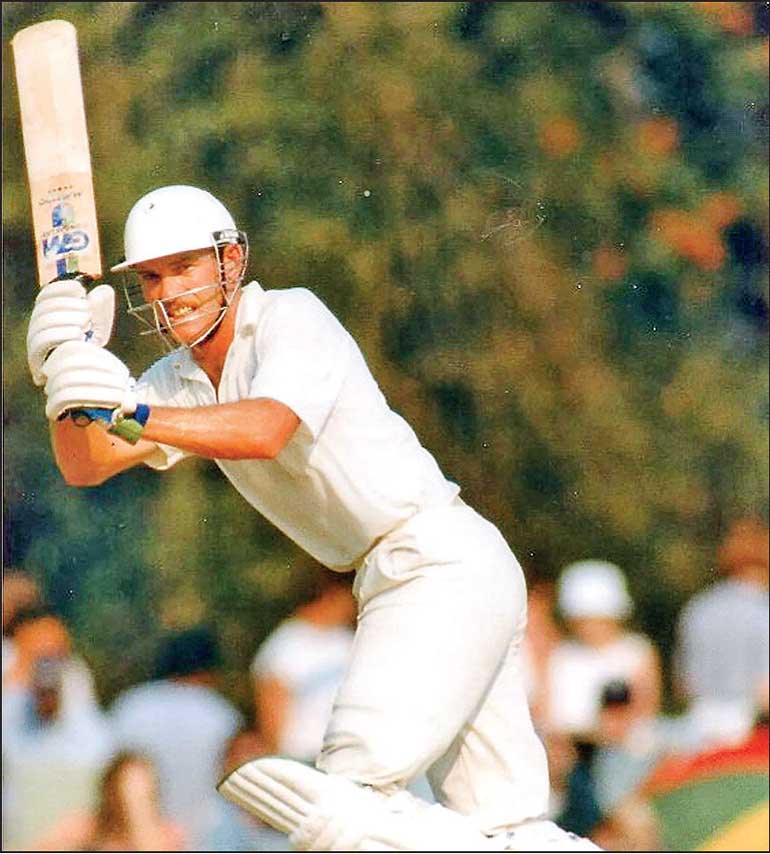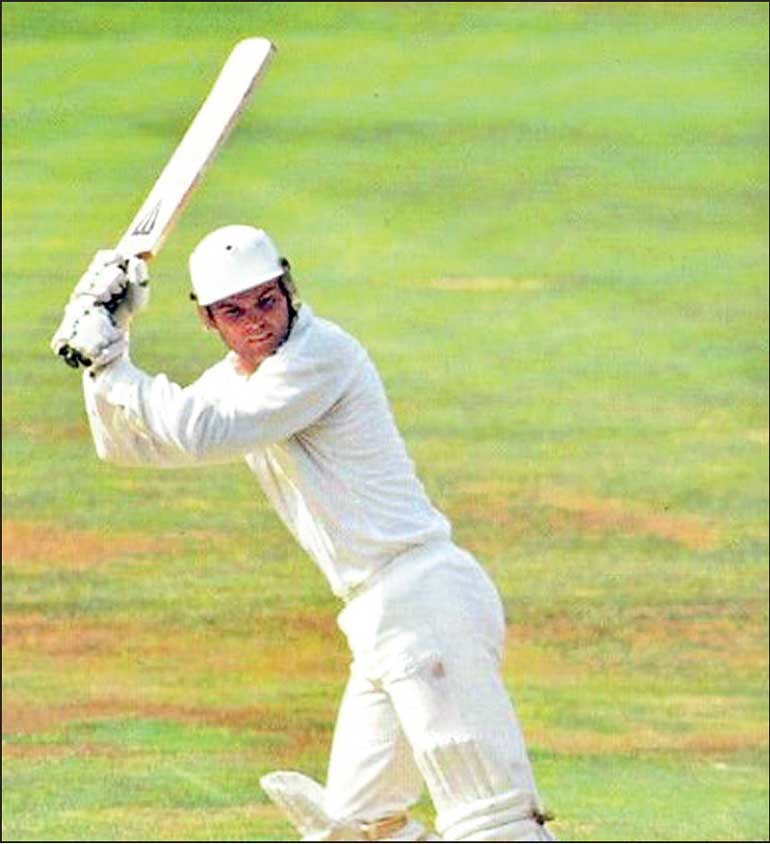Tuesday Feb 17, 2026
Tuesday Feb 17, 2026
Friday, 8 November 2024 00:22 - - {{hitsCtrl.values.hits}}

Jeff Crowe captained
New Zealand on the 1987 tour

Martin Crowe led New Zealand in 1992
By Sa’adi Thawfeeq
Of all the cricket playing countries that have toured Sri Lanka, New Zealand have a history of being the most unfortunate team to be in the wrong place at the wrong time, for no fault of theirs.
The present New Zealand white ball team that has arrived in Sri Lanka for five matches has come amidst the country’s general election which is scheduled for 14 November.
As a result, after they play the two T20Is in Dambulla and the first ODI also at the same venue, there is a break of three days to accommodate the general election on 14 November. The ODI series re-commences in Pallekele on 17 November with the second match. The third and final ODI will also be played at the same venue on 19 November to conclude the tour.
Two months back, the New Zealand Test side was in Sri Lanka when the Presidential election was held. This resulted in the first Test played at Galle having a rest day (on 21 September – the day of the election), a rarity these days. It was the first time since December 2001 that a rest day took place in a Test match in Sri Lanka and the first instance of a rest day since the Sri Lanka v Bangladesh Test at Dhaka in 2008.
These two instances are of miniscule proportion when compared to what took place before them. There have been worse scenarios than elections that New Zealand teams have undergone in the past. The Crowe brothers, Jeff and Martin have been subjected to some horrendous incidents as captains.
The first instant took place on New Zealand’s maiden Test tour in 1984. The first Test played at Asgiriya Stadium, Kandy saw Sri Lanka chasing a target of 263 to win, collapsing for 97 to hand New Zealand led by Geoff Howarth a win by 165 runs. They were at one stage 18-6 before recovering to 97. But the poor batting was not appreciated by a section of the spectators who started to riot, throwing stones and objects at the Sri Lankan dressing room, and had to be quelled by riot police. It was the first Test match played at home after the Sri Lanka Cricket Board had imposed a 25-year ban on 14 players, who had undertaken an unofficial tour of apartheid South Africa that included the Captain Bandula Warnapura. Warnapura was replaced by Duleep Mendis as captain. With angry spectators waiting on the road side to stone the bus carrying the Sri Lankan team, measures had to be taken to reach Colombo through a different route via Kurunegala. But thankfully the incidents did not affect the rest of the tour.
New Zealand’s second tour to Sri Lanka in 1987 under the captaincy of Jeff Crowe ended in dreadful fashion when at the end of the high scoring drawn first Test on the fifth and final day at the CCC grounds, a car bomb exploded at the Pettah central bus station killing at least 113 people which resulted in curfew being imposed. In the immediate aftermath, Sinhalese mobs rioted across the streets of Colombo hunting down Tamil civilians. The attack was attributed to the Tamil militant group LTTE which was waging a war with the Sri Lankan government for a separate state. With the situation not conducive to play cricket, the remaining two Tests were cancelled and the New Zealand team returned home. Following the incident no team wanted to tour Sri Lanka and there was a lull for five years before international cricket returned to the country. New Zealand’s third tour to Sri Lanka in 1992 too was disrupted by violence. The Commander of the Navy Admiral Clancy Fernando was assassinated by an LTTE suicidal cadre who rammed an explosive laden motorcycle into his vehicle along the Galle Face Centre Road. The incident took place only 50 metres from the team’s hotel at Hotel Taj Samudra and New Zealand considered abandoning the tour.
The players were split on the decision and New Zealand Cricket Board Chairman Peter McDermott flew to Sri Lanka to negotiate with them. Wisden reported that McDermott was concerned about the compensation that would need to be paid to the Sri Lankan Cricket Board if the tour was cancelled, and was also under pressure from the New Zealand Government which was aiming to improve trade-relations with Sri Lanka. He convinced the players to continue the tour but with a rescheduled itinerary. The three Tests was cut down to two and a 3-day warm-up match that was scheduled to start on 17 November, the day after the bombing was cancelled and replaced by two one-day matches against a Sri Lankan Cricket Board XI. The three ODIs remained untouched.
Further, five players Mark Greatbach, Gavin Larsen, Rod Latham, Dipak Patel and Willie Watson chose to leave the tour and return to New Zealand along with coach Warren Lees. They were replaced by Grant Bradburn, Michael Owens, Justin Vaughan and John Wright who had previously made himself unavailable for the tour. The Captain Martin Crowe, took over as the main coach of the team. New Zealand lost the two-Test series 1-0 and the ODI series 2-0.
Successive tours to Sri Lanka by New Zealand in 1998, 2003, 2009, 2012, and 2019 have taken place free of any untoward incidents. New Zealand have also been to Sri Lanka on separate white ball tours as well in November 1984 and 2013.